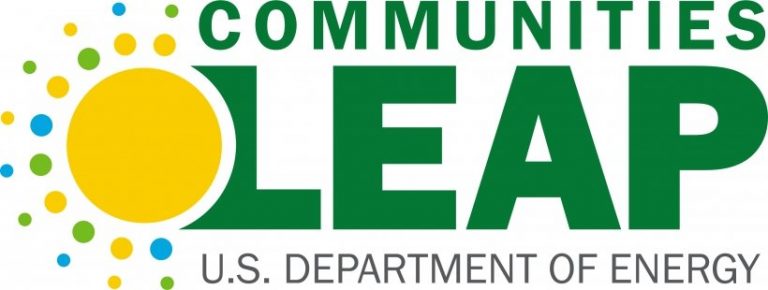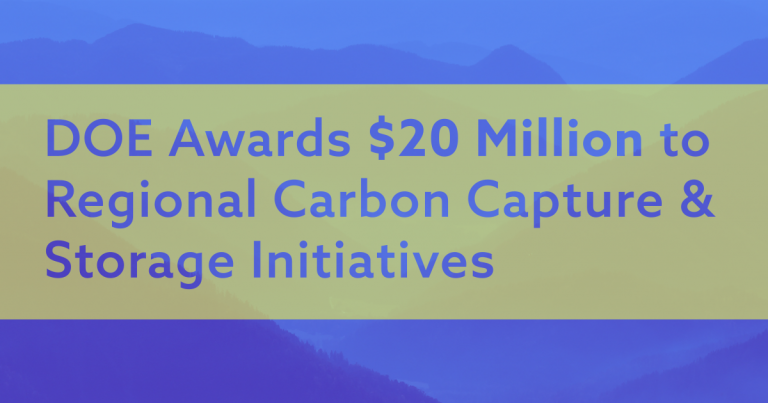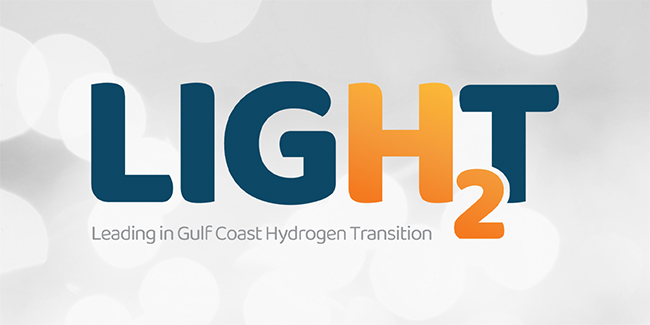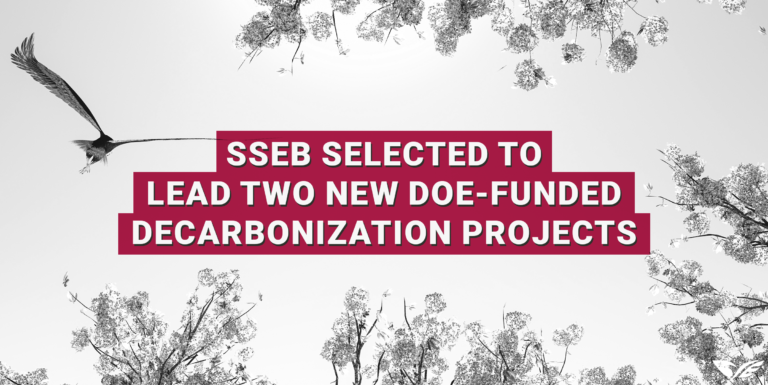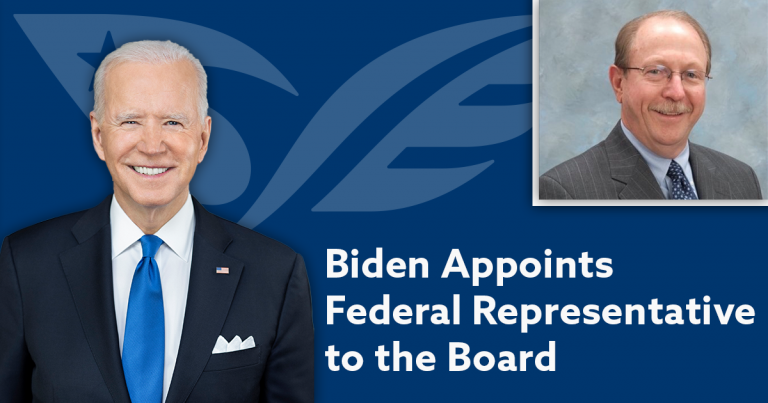SSEB and Partners to Establish Southeast Direct Air Capture Hub
Project Will Provide $20.5M to Establish a DAC Hub in northern Mobile County, Alabama
The U.S. Department of Energy’s Office of Fossil Energy and Carbon Management announced today that it will enter negotiations with Southern States Energy Board and its partners to support the deployment of a regional direct air capture (DAC) hub in south Alabama.
We are thrilled to see the federal government’s continued investment in novel decarbonization technologies, and we are excited to see comparable energy industry investments benefit the Southeast. Our visionary membership of governors and state legislators has led the Board to explore myriad cutting-edge carbon management solutions of which this project is just one, but it’s one we expect will propel the region toward significant emission reduction goals.
Ken Nemeth, Secretary and Executive Director of the Board
Known as the Southeast DAC (SEDAC) Hub, the project will support the deployment of cutting-edge DAC technologies in Mobile County, Alabama. DAC is a process designed to reduce carbon dioxide (CO2) levels in the atmosphere by capturing CO2 directly from the air. The CO2 is then stored safely and securely. The SEDAC Hub is one of five Topic Area 2 projects chosen by the federal government to receive funding in order to establish a regional DAC hub.
Mobile County is an ideal location to support the initial phases of a DAC hub as it is home to many industrial facilities, large tracts of available land, and appropriate subsurface geology to support the creation of a sustainable CO2-based economy.
In addition, numerous opportunities exist to employ the region’s skilled workforce in pursuit of a variety of CO2 use cases beyond permanent storage in subsurface reservoirs (e.g., CO2 to fuels). Because of these attributes, the SEDAC Hub will not only abate local emissions but also lead to the development of a carbon reduction ecosystem in the area and the Gulf South more broadly.
We are delighted to introduce the SEDAC Hub, which capitalizes on longstanding investments in the region, and stands as a testament to our resolute dedication to innovation and sustainable progress. With help from our world-class partners, we intend to place the Gulf at the vanguard of the nation’s decarbonized economy.
Ben Wernette, Ph.D., Principal Scientist and Strategic Partnerships Lead
The SEDAC Hub is led by the Southern States Energy Board. The Project Team includes 8 Rivers, Aircapture, Crescent Resource Innovation, ENTECH Strategies, Georgia Tech, Mitternight, RTI International, the University of Alabama, and the University of South Alabama. Stakeholders include Southern Company and its Alabama Power Company subsidary, Tenaska Sequestration Solutions, and the Mobile Chamber of Commerce among many others.
The team has established a robust community outreach and two-way engagement program that includes a Community Advisory Board (CAB) composed of diverse local stakeholders; industry partners interested in decarbonization; and local community colleges, universities, and trade schools. The CAB will provide input to achieve community-supported DAC growth and guide the development of SEDAC’s Community Benefits Plan.
The anchoring technologies for the SEDAC Hub were developed or optimized by 8 Rivers and Aircapture. 8 Rivers’ DAC technology, called Calcite, uses a calcium-based solid sorbent to pull CO2 from the ambient air, capturing it as calcium carbonate. The calcium carbonate is then heated by an oxy-fired kiln, which separates the CO2 for sequestration and produces additional calcium oxide to be recycled into the system. Aircapture’s DAC technology employs a polymeric amine sorbent on a commercially available contactor substrate to capture CO2 from ambient air. The technology is currently deployed and undergoing operational testing at the National Carbon Capture Center in Wilsonville, Alabama, with several additional commercial deployments currently under construction in various markets across the nation.
The SEDAC Hub project will complete front-end engineering design (FEED) studies required to support the construction and operation of two DAC facilities, each with an initial capture capacity of 50,000 net tonnes of CO2 (the equivalent of permanently removing nearly 22,000 internal combustion cars from the road). The project team will complete a balance of plant FEED study for infrastructure to be shared between the two DAC technologies assessing the feasibility of low-carbon intensity energy sources and evaluating the availability and suitability of existing infrastructure for reuse. SSEB and its partners will also work closely with regional storage field developers to identify a CO2 storage solution and submit a National Environmental Policy Act (NEPA) Environmental Information Volume (EIV) based on the integrated DAC Hub. Alabama Power Company will work with the project team to potentially provide a location for the DAC hub on property adjacent to its James M. Barry Electric Generating Plant in Bucks, Alabama.
Questions?
Click the button below to contact a member of our staff.
About the Project Team
Southern States Energy Board is a non-profit interstate compact organization created in 1960 and established by law. The Board’s mission is to enhance economic development and the quality of life in the South through innovations in energy and environmental policies, programs, and technologies. Sixteen southern states and two territories comprise the membership of SSEB: Alabama, Arkansas, Florida, Georgia, Kentucky, Louisiana, Maryland, Mississippi, Missouri, North Carolina, Oklahoma, Puerto Rico, South Carolina, Tennessee, Texas, US Virgin Islands, Virginia, and West Virginia. The Board’s staff is experienced in developing and implementing energy industry and federally funded projects with notable examples including the SECARB Anthropogenic Test, the SECARB-USA Regional Initiative, among many others. The Board currently oversees DAC-related projects via the activities of the DAC RECO2UP program (DE-FE0031961) in collaboration with Aircapture and Southern Company.
8 Rivers is a Durham-based innovation firm that focuses on industrial-scale, sustainable technology innovation, project development, and commercialization. The company brings world-leading expertise in carbon capture and a decade of experience leading publicly and privately funded technology development programs across clean power (Allam-Fetvedt Cycle), clean hydrogen (8RH2), and carbon removal. 8 Rivers is the inventor of Calcite, a calcium-based DAC technology.
Aircapture is a DAC and carbon utilization technology development company with headquarters and manufacturing facilities in Berkeley, CA. Aircapture is currently executing three grants with the U.S. DOE for its modular DAC technology: under award DE-FE0031961 and two scale-up FEED awards under FOA 2560 AOI-1 and AOI-3 for scale-up design efforts, one recovering waste heat from a fertilizer production plant to make formic acid and the other a scale-up effort recovering waste heat from a nuclear power plant in Alabama for geologic sequestration. In addition, Aircapture has developed technologies with CO2 liquefaction, supercritical CO2 processes, electrochemical conversion of CO2 into value-added products, and integration of DAC technology for HVAC applications.
Crescent Resource Innovation, Inc. (CRI) is a Huntersville, North Carolina-based consulting firm with industry and project specific experience related to the project management, project integration, risk analysis, financial and infrastructure needs of carbon capture, utilization, and storage (CCUS) projects.
ENTECH Strategies will coordinate with minority-serving institutions and community leaders to increase the participation of students from underserved and/or minority communities in the Project. ENTECH’s co-founder is a globally recognized carbon management expert with 20+ years of experience mentoring and educating young professionals in the carbon capture and storage (CCS) field. As part of this, ENTECH established the US DOE FECM-supported Research Experience in Carbon Sequestration (RECS) program in 2004 that has successfully trained more than 650 early career professionals in matters related to CCS.
Georgia Institute of Technology, also known as Georgia Tech, is one of the top public research universities in the U.S., developing leaders who advance technology and improve the human condition. Georgia Tech has researchers working across the energy value chain and leads in scientific leadership in basic and applied science in carbon capture, industrial decarbonization, and related social sciences. Georgia Tech is consistently rated among the top universities in the nation for graduation of underrepresented minorities in engineering, physical sciences, and energy-related fields. Serving as a regional resource to help communities understand how they can transition to a clean energy economy, Georgia Tech is the Southeastern leader in achieving regional impact through education and contributions to community. Georgia Tech will serve education, workforce, and community development functions in the Southeast DAC Hub. Additionally, Georgia Tech’s role will be supported by The Direct Air Capture Center (DirACC), which is the culmination of more than a decade of research at Georgia Tech to develop and evaluate materials, contactors, and processes that extract carbon dioxide directly from the atmosphere. DirACC creates a forum for collaborative research on negative emission technologies and Direct Air Capture, bringing together researchers from across the Institute working in energy, sustainability, policy, and related fields.
Mitternight Industries is a comprehensive industrial solution provider and manufacturer of ASME code vessels including heat exchangers, chemical reactors, distillation columns and other pressure vessels, utilizing materials ranging from carbon steel to titanium. Founded in 1927, Mitternight’s unique, market-based approach of self-performed services which include EPC operations, original equipment manufacturing (OEM) fabrication and construction, and field services have propelled Mitternight to be a recognized turnkey solution provider for the most sophisticated projects for Fortune 500 customers around the world.
RTI International is a Research Triangle Park-based independent, nonprofit, research institute dedicated to improving the human condition. RTI’s vision is to address the world’s most critical problems with science-based solutions in pursuit of a better future. Clients rely on RTI to answer questions that demand an objective and multidisciplinary approach—one that integrates expertise across the social and laboratory sciences, engineering, and international development. From ideation to pilot scale to commercialized systems, we tackle process challenges across the power, chemical, petroleum, gas processing, and transportation industries. RTI’s expertise includes biomass conversion, carbon capture and utilization, natural gas, industrial water, syngas processing, and other advanced energy applications.
The University of Alabama (UA) is a public research university in Tuscaloosa, Alabama. Established in 1820, it is the oldest and largest public university in Alabama and the flagship of the University of Alabama System. With 300 faculty and staff and advanced laboratories, the College of Engineering is active in multidisciplinary areas of research and has strong connections with the manufacturing industry (Mercedes, etc.) and energy companies in Alabama. The UA Decarbonization Lab, in collaboration with Alabama Transportation Institute, is accelerating the development of new generation DAC technologies, CO2 utilization, and business models while providing a diverse training ground for the next generation of leaders entering a rapidly emerging global market. As part of this effort, novel concepts have been demonstrated through the complementary channels of experimental demonstration in laboratory and pilot scale, techno-economic assessment, business case evaluation, and life cycle assessment. In addition, the UA Office for Research and Economic Development (ORED) is actively engaged in economic and business development activities including the GulfQuest operation in Mobile, Alabama; The EDGE Labs; and the UA Center for Economic Development and the Business Outreach Centers.
The University of South Alabama (USA), founded in 1963 and located in Mobile, is a state university home to over 14,000 graduate and undergraduate students in over 100 academic programs. The facilities on USA’s 1,200-acre main campus have transformed since 2007, with new construction for student housing and recreation, the arts, engineering, computer science, health science, and athletics. Situated on the Gulf Coast at the intersection of two major interstate highways, and at the site of the ninth largest port in the United States, USA is strategically located in an international commercial hub, providing unprecedented opportunities for students to gain research and professional experience in their fields. Research strengths include ionic liquids, marine science, coastal engineering and resiliency, cybersecurity, and logistics. The South Alabama Ionic Liquids Laboratory (SAILL), a cluster of researchers at the USA, is internationally recognized for its contributions to the development and use of ionic liquids (molten salts) in a number of applications, including separations. More specifically, the SAILL team has extensive experience in developing ionic liquids (ILs) and related aqueous ionic amines for the reactive, reversible capture of CO2.


